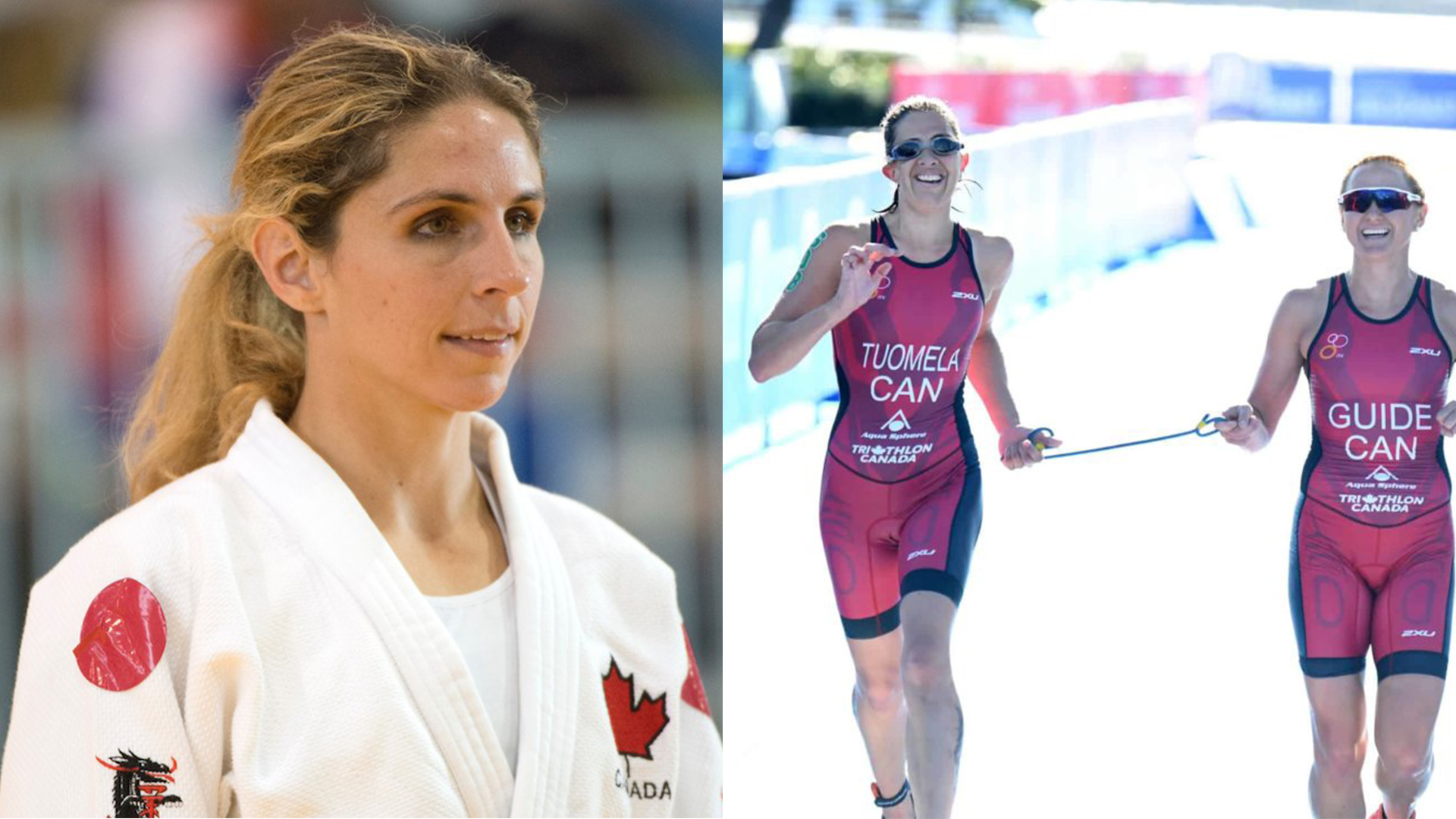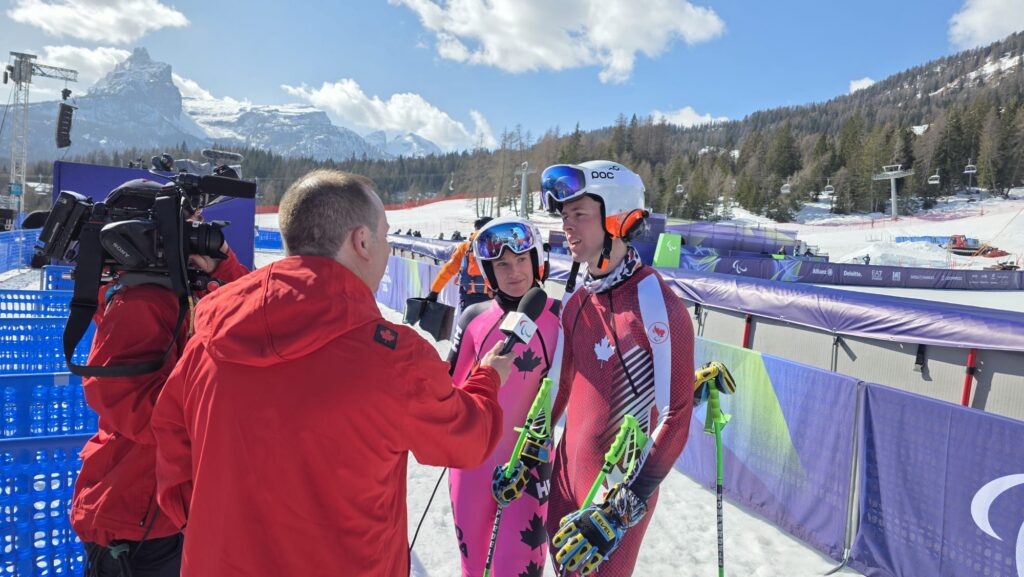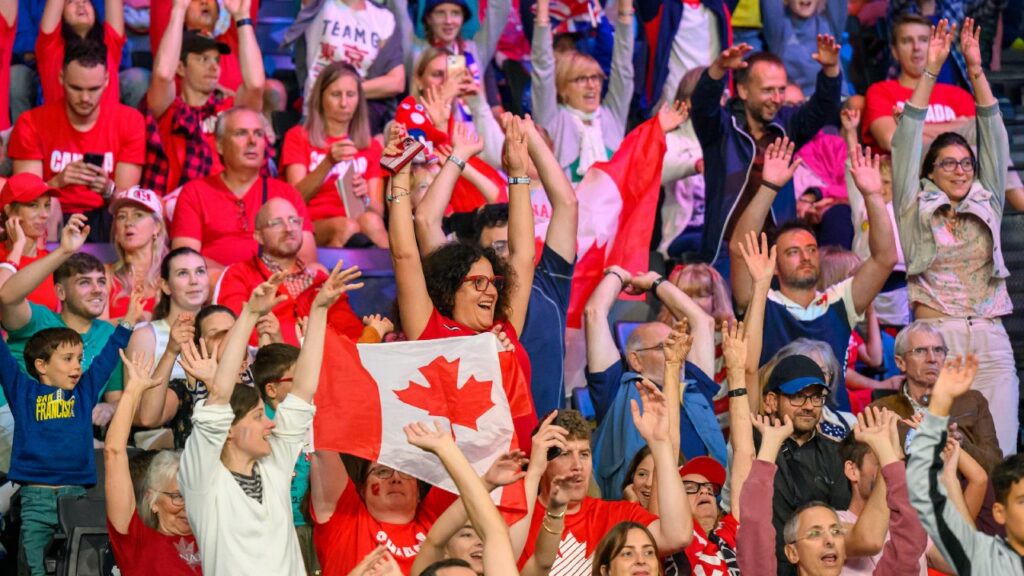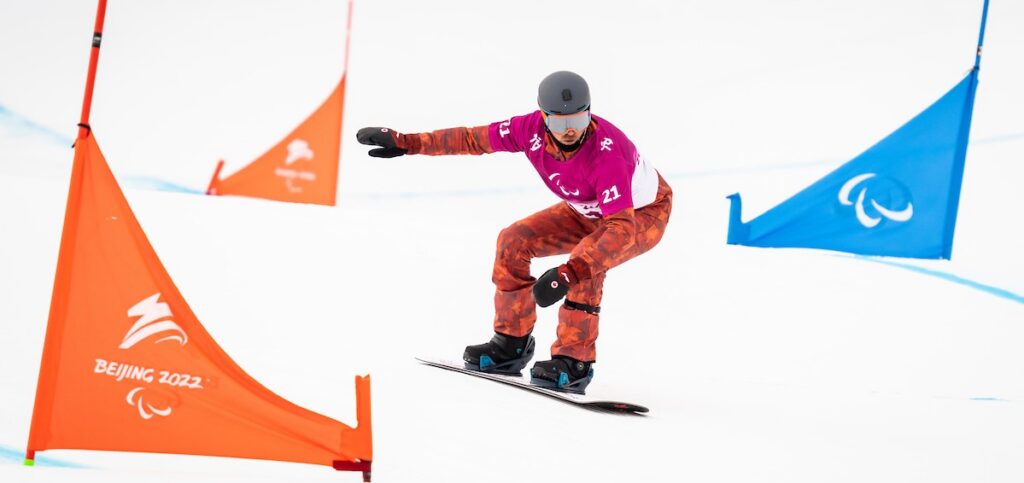Despite unplugged season, visually impaired athletes still charged
''I truly love what I do''

If you’re feeling down about the current COVID-19 situation, there’s nothing like a conversation with Canadian Paralympians Priscilla Gagné and Jessica Tuomela to lift your spirits.
Both Para judoka Gagné and Para triathlete Tuomela, who are visually impaired, have had to make adjustments over the past few months but have maintained a positive approach.
The two athletes are both very independent people and say they haven’t struggled too much with social distancing outdoors, especially now that the population is much more vigilant. Grocery shopping is their biggest hurdle, but they are covered by friends and neighbours.
‘’I almost got kicked out of a grocery store,’’ said Gagné, 34, a world championship medallist and Paralympian in Para judo who resides with her best friend in a Montreal apartment.
‘’They claimed I was supposed to have someone go for me because of my visual impairment. I have enough vision to stay six feet away but I haven’t been grocery shopping since. My roommate and neighbours now do it for me.’’
They are both high performance athletes who require training partners, in Tuomela’s case a guide, and this isolation could have a detrimental effect on their careers. But Gagné and Tuomela are solution seekers and by all appearances they will be in the same strong mental and physical shape as they were before the pandemic hit.
Gagné has kept herself busy with her workouts, piano lessons through Zoom, preparing for her Creative Writing online course at Concordia University this fall and helping her local church keep tabs on their members.
‘’At the very beginning of the lockdown we didn’t know how long this was going to last,’’ said Gagné. ‘’After that first two weeks I realized I needed a plan. I still go to bed and wake up at the same time. I treat each day just like I was in training in order to keep my sanity and maintain the motivation as well.’’
As an athlete in a combat sport, Gagné admits there are challenges. But she does her best with her two kettlebells, medicine ball, a weight and chin-up bar, elliptical machine and resistance bands.
‘’It’s very difficult though to execute dynamic, explosive movements with weights,’’ she said. ‘’There’s no one to do judo with so to deal with real body weight that’ll probably be the most difficult thing to come back.
‘’But a lot of judo is like riding a bike because it is a lot of it is muscle memory. The first week will be tough, but I’m not worried.’’
Like Gagné, Tuomela is a chatterbox who has been silenced somewhat due to the restrictions.
‘’I’m completely blind so my life revolves around talking and touching people,’’ said Tuomela, a national team Para triathlete who trains in Victoria. ‘’I’m very independent but being on my own this much has been really weird. Thankfully technology and having my two dogs has made it better.’’
Tuomela, 36 and a silver medallist at the 2000 Paralympics in Para swimming, keeps herself busy with her training workouts on Zoom and heads outdoors to walk four to five kilometres a day sometimes with her guide dog Nala and her pet dog Hermione.
She is still uncomfortable taking public transport at this time due to physical distancing.
Her Para triathlon guide Marianne Hogan, who is in Montreal, coach Carolyn Murray, and her volunteer guides also keep in touch with her through social platforms but still cannot train with her. She says the various kinds of workouts have helped her strengthen different areas of her technique, such as endurance and bike speed, that she hopes will be beneficial in the future.
‘’I think the biggest lesson I’ve learned through all this is that I truly love what I do,’’ said Tuomela. ‘’I’m a bit weird in the sense that I actually enjoy the training lifestyle part of the athlete’s life and I like to see my progress.’’
It seems nothing, not even a global pandemic, can stop Tuomela and Gagné from being the best they can be.



"*" indicates required fields
"*" indicates required fields